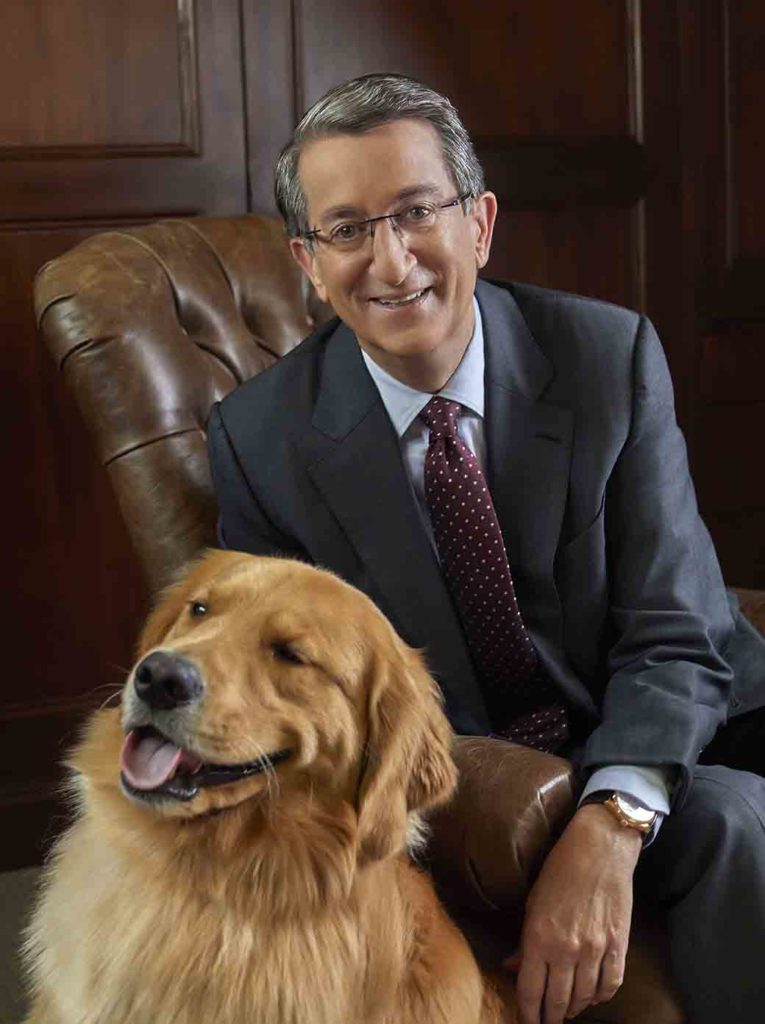Leading with Compassion

Leading with Compassion
Donato J. Tramuto on why business leaders should start with tenderness
by Paul Koenig
Issue: October 2020
Donato J. Tramuto believes for any foundation to be successful, its leaders need to follow their own passions. For Tramuto, those are inspiring young people with disabilities to believe in themselves, healthcare access, and human and equal rights and dignity for all. Along with working as an executive at healthcare and pharmaceutical companies for the better part of three decades, Tramuto has started two foundations. He created the first, the Ogunquit–based Tramuto Foundation, which provides college scholarships to young adults, in memory of two friends and their three-year-old son, who were on the United Airlines flight that crashed into the South Tower of the World Trade Center on September 11, 2001. Tramuto himself was scheduled to be on the plane, but a toothache forced him to change his flight. In 2011 he founded Health eVillages, which works to broaden healthcare access and provides state-of-the-art mobile health technology to communities in need around the world. Most recently, Tramuto has been named honorary scholar-in-residence at St. Joseph’s College in Standish.
What have you learned from your foundation work that you don’t think you would have learned in the for-profit sector?
The first I would say is that there is a starvation right now for a new kind of leadership, and it’s compassionate leadership. I think you miss it in the business world because you are so focused on profits. You’re so focused on assertiveness and getting results that I think sometimes you forget the most important part of what makes companies survive, and it’s people. And I think that there has been an enormous breakdown in dignity. CEOs are not intending people to be bullied, but they’re not recognizing it. And I recognized it more in my foundation, the Tramuto Foundation, because of the work that I was doing with young children in terms of sponsoring their education. And I started to realize, gosh, if a young child is being bullied in preschool, the person that’s doing the bullying, do you think when they graduate that they’re now exonerated from future bullying? No, they go into the workforce, and they do it there. I think this is changing now because many of the CEOs that I’m talking to are realizing you can have a double-bottom line in a company. You can be profitable; you can do good. And I’ll be honest with you, the doing good part came out as a result of me working in not-for-profits. And I think any company that doesn’t promote a balance in the workplace around a double-bottom line, I think going forward, it will be very difficult to put a soul in the company. I’m beginning to sense and feel a different breed of leaders who are recognizing that now.
As a business leader, how did you put that mindset in practice?
At Tivity Health, the company that I was leading until I retired there in February, I started a program called the 3T Program. And we trained every manager to start off with tenderness first, to get the trust with your employees. And then you can be tenacious. The problem is, so many leaders start off with the last T, where they’re tenacious. And then they go around with a pooper scooper, and they think that they’re going to be able to win back the employees, and they don’t. And so, my next book will be focusing on how do we help leaders understand that compassionate leadership is not weak leadership? So many people 20 years ago, when I talked about compassionate leadership, they looked at me and said, “Well, that’s weak leadership,” but now we’re realizing it’s not weak leadership. With compassionate leadership, you can still be strong, but you start off with a little bit of tenderness to win the trust and to reignite that sense of dignity for every employee.
What do you think has been the through line of your career?
It’s always hard to describe my life because it’s involved in so many different venues, but I do think that the consistency and the glue that keeps it together is my passion for a more compassionate and kinder and a more empathetic world. In my book [Life’s Bulldozer Moments: How Adversity Leads to Success in Life and Business], the last chapter, I challenged people that why, when we have a terminal illness, do we give that individual a definitive timeline? And why don’t we do it when we’re healthy? I’m 64 years old. I anticipate I have 20 years left. That’s 240 months that I have left. Next month, that’s 239. My point is, it’s going very fast. And my hope is that in whatever time I have left, that I can leave the world a tad better than when I entered into it. And I’m not that naive to think that I’m going to eradicate diseases or I’m going to eliminate suffering. One of my favorite quotes is from the French philosopher, Camus, who once said, “Perhaps we live in a world where there are suffering children, but our job is to lessen the number of suffering children.” I think that’s my goal, that I’m not going to eliminate it, but if 20 years from now, 240 months from now, I can look back and say, “Boy, I did my part in lowering the amount of suffering in the world.” I think that that will have been an enormous achievement.

